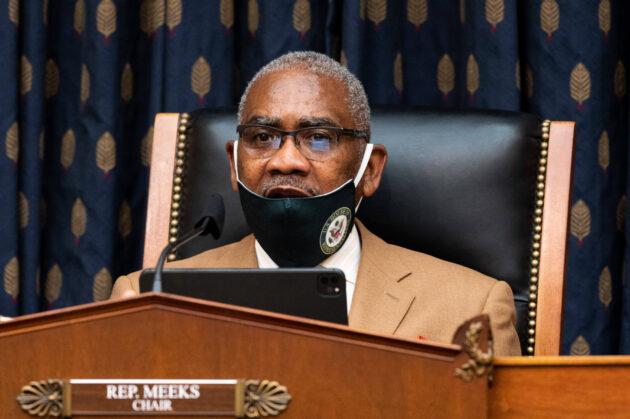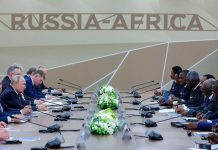Africa-Press – Mauritius. The US is gearing up to show itself as a viable alternative to China with respect to building infrastructure in developing countries. Representative Gregory Meeks, chairman of the powerful House Foreign Affairs Committee, made the case today in that provocatively titled Foreign Policy column where he echoed many of the same talking points that we’ve heard from the Biden administration for months about the opportunity to provide developing countries with an alternative to China by building infrastructure that’s “high-standard, transparent, and environmentally and financially sustainable.
While B3W was designed from its inception to compete directly with China, Meeks nonetheless gave the obligatory nod at the end of his column about how the real focus of this initiative should be on the needs of developing nations and not Beijing – even though few, if anyone, in Washington really believes that.
What isn’t said in the Washington discussion about B3W Ideals versus reality Every B3W speech speaks of the need for infrastructure projects to be inclusive (e. g.
no Chinese labour), environmentally friendly (no Chinese coal plants), financially sustainable (no Chinese predatory lending), high-quality (no low-quality Chinese construction), and transparent (no opaque Chinese contracts).
All of that sounds great and in principle, few would probably disagree with any of those ambitions. However, implementing those ideals in countries with low levels of governance is going to be extremely difficult, in most instances.
And it’s not entirely clear that most African governments would even welcome that kind of transparency, based on what we’ve seen to date. After all, there’s nothing preventing any African government from passing a law tomorrow that would require all Chinese loan contracts to be made public.
This, of course, hasn’t happened (Cameroon being the notable exception). China talking points are out of date Meeks, like US Secretary of State Antony Blinken and numerous other senior-level US stakeholders, have consistently demonstrated a poor understanding of the current state of Chinese engagement in the Global South.
The Representative referenced Chinese “asset seizures” (the new version of the widely debunked “debt trap” narrative), “oppressive Chinese debt enforcement” (China’s actually deferred more debt than any other member of the G20) and insinuated China promotes coal and other environmentally unfriendly infrastructure programmes (China’s curtailed its financing of overseas coal projects).
The point here is not to defend the Chinese but rather to suggest that if US stakeholders aren’t basing their arguments on sound information, then it will be much more difficult for them to establish legitimacy among their counterparts in Africa and other developing regions.
The need for speed Over and over again, the one thing leaders in developing countries say they like the most about working with the Chinese is how fast they’re able to get things done.
The fact that the Chinese don’t spend months and months writing impact assessment reports as part of their development initiatives is a key competitive advantage in the eyes of many local politicians who are often more interested in delivering the final infrastructure asset than how it was made. Already, the US development method is highly bureaucratic, oftentimes for good reasons, but it can be slow.
So, if B3W and its requirements for sustainability, transparency and quality are going to be a success, the relevant agencies are going to have to find a way to cut the workflow down considerably so each project doesn’t get bogged down in reports, meetings, conferences, etc… to the point where nothing gets done. More than anything, this is B3W’s biggest challenge.
For More News And Analysis About Mauritius Follow Africa-Press







